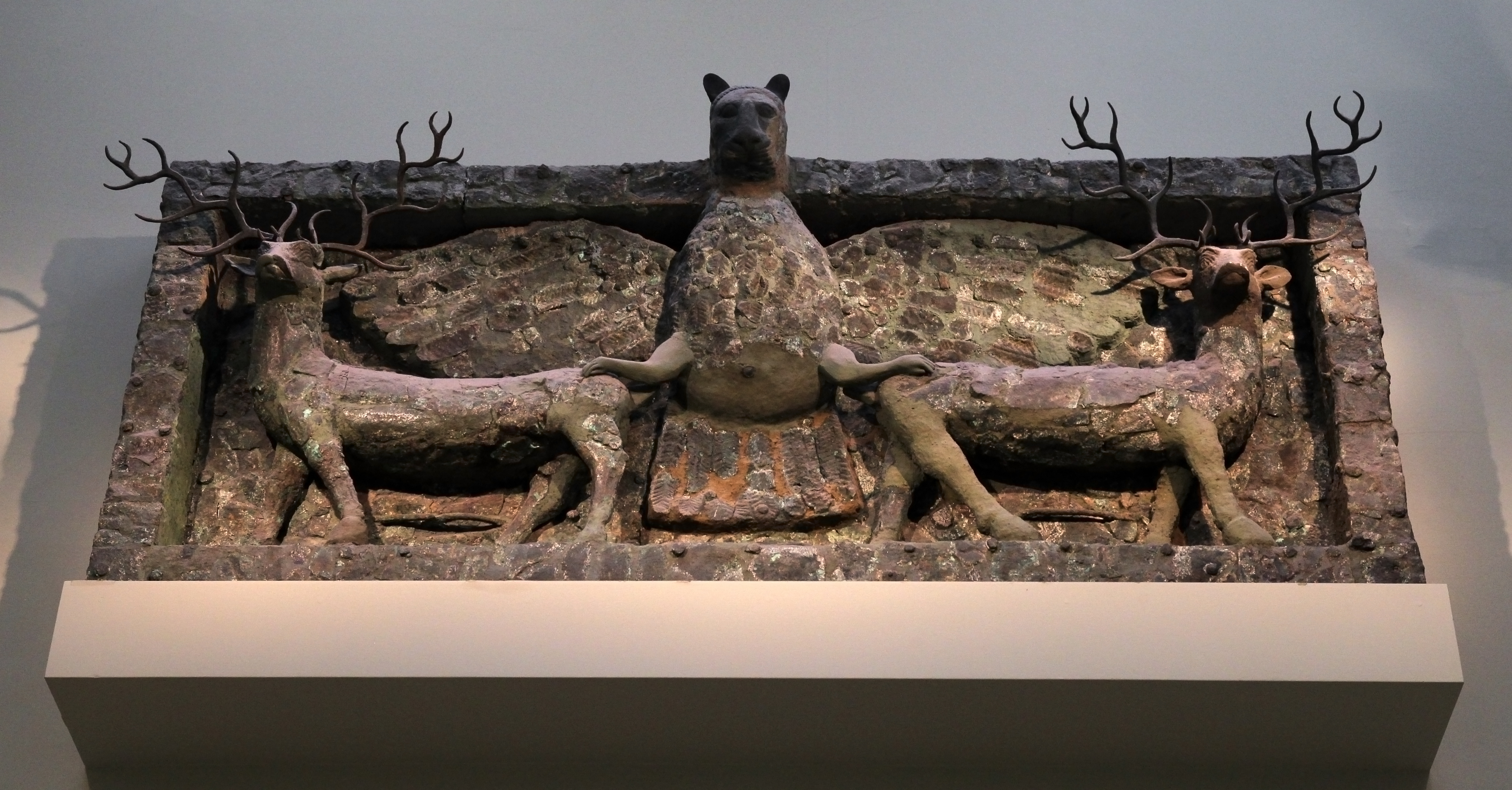Ninhursag (Sumerian deity)
Enlarge text Shrink text- Work cat.: Kramer, S. N. Enki and Ninhŭrsag : a Sumerian "paradise" myth, 1945
- Britannica online, Nov. 30, 2010:(Ninhursag; also spelled Ninhursaga in Sumerian; Belit-lil in Akkadian; other names include: Dingirmakh, Ninmakh, Aruru, and Nintur)
- Bloomsbury dictionary of myth online via Credo reference, Nov. 30, 2010Ninhursaga (eldest child and first consort of the sky-god An in Mesopotamian myth; a form of Mother Earth; called Aruru; Belit-illi; Belitis; Nintur; Ninki; Ninlil; Damkina)
- Encyclopedia mythica online via Credo reference, Nov. 30, 2010:Belet-Ili (the Sumerian goddess of the womb) Nintu (a Mesopotamian goddess; an aspect of Belet-Ili, mother of gods) Beltis (Greek rendering of Belit, an appelation of Ninlin/Ninhursag)
- themystica.org website, Oct. 25, 2010(Ninhursaga, one of seven great deities of Sumer; she was worshipped from about 3500 BC to 1750 BC; a fertility goddess; name changed from Ninmah by her son; Ninhursaga possessed many more synonyms or titles)
- Wikipedia, Oct. 26, 2010Ninhursag (Nin-hursag means "lady of the mountain"; she had many names including Ninmah (Great Queen); Nintu (Lady of Birth); Mamma or Mami (mother); Aruru (meaning unknown); Belet-Ili (lady of the gods, Akkadian); according to legend her name was changed from Ninmah to Ninhursag by her son Ninurta)
Ninḫursaĝ (Sumerian: 𒀭𒎏𒄯𒊕 Ninḫarsang; DNIN-ḪAR.SAG̃), sometimes transcribed Ninursag, Ninḫarsag, or Ninḫursaĝa, also known as Damgalnuna or Ninmah, was the ancient Sumerian mother goddess of the mountains, and one of the seven great deities of Sumer. She is known earliest as a nurturing or fertility goddess. Temple hymn sources identify her as the "true and great lady of heaven" (possibly in relation to her standing on the mountain) and kings of Lagash were "nourished by Ninhursag's milk". She is the tutelary deity to several Sumerian leaders. Her best-known myths are Enki and Ninhursag describing her dealings with Enki resulting from his sexual exploits, and Enki and Ninmah a creation myth wherein the two deities compete to create humans. She is referenced or makes brief appearances in others as well, most notably as the mother of Ninurta in the Anzû Epic.
Read more on Wikipedia >
 Personality
Personality







